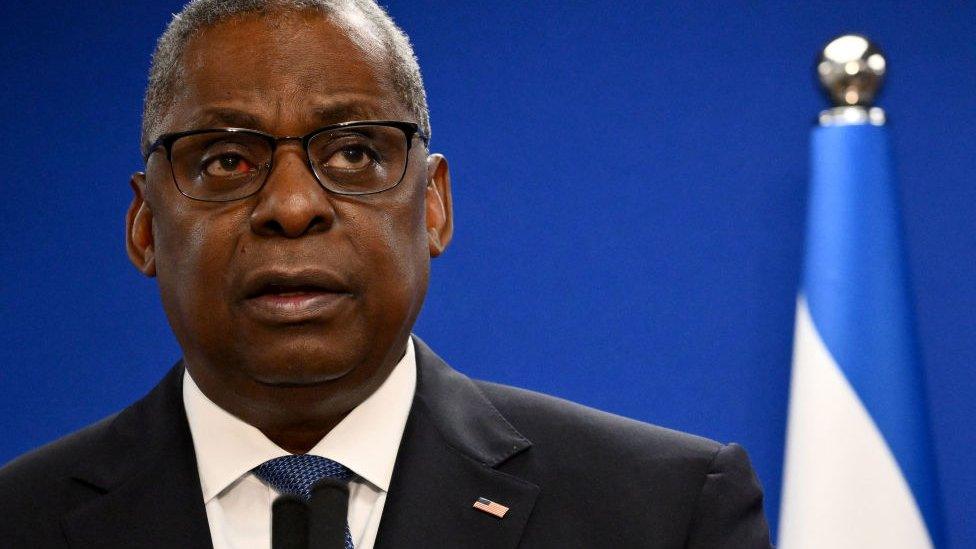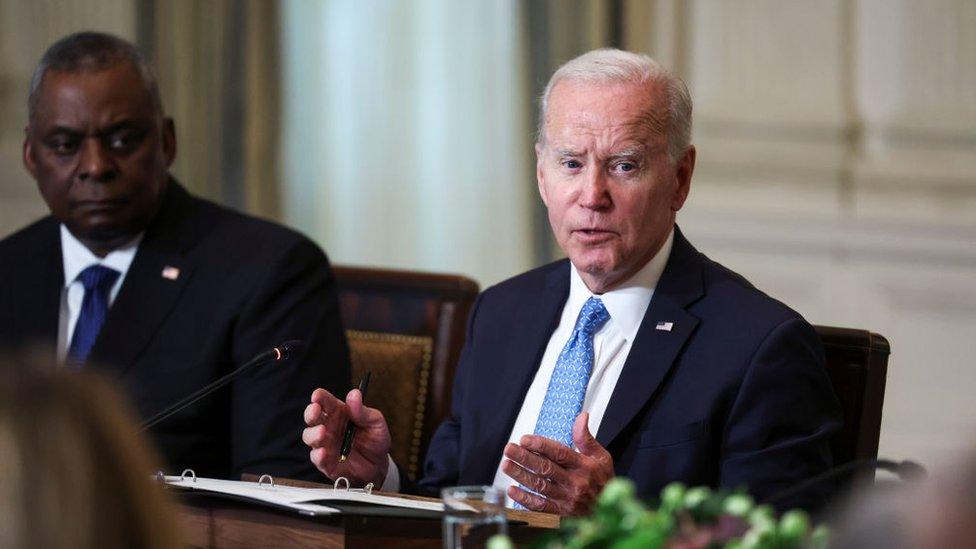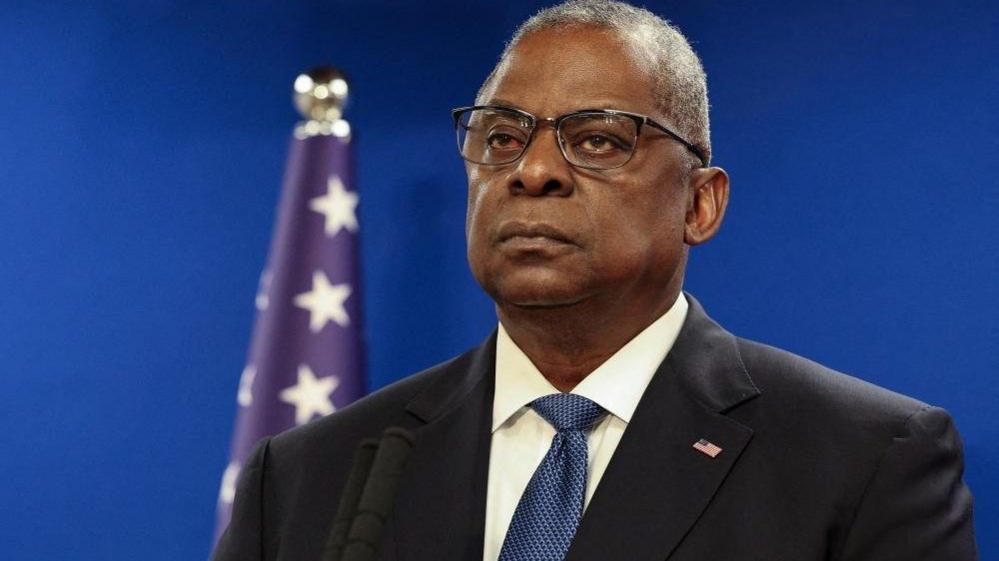US Defence Secretary Lloyd Austin released from hospital
- Published

Secretary of Defense Lloyd Austin will continue his recovery at home
US Defence Secretary Lloyd Austin has been released from hospital and will perform his duties remotely as he continues to recover from treatment for prostate cancer, the Pentagon has said.
His delay in telling colleagues and the White House about his illness sparked criticism and three investigations.
The 70-year-old was admitted to an intensive care unit on 1 January due to complications from surgery in December.
He is expected to make a full recovery, his doctors said in a statement.
"Secretary Austin progressed well throughout his stay and his strength is rebounding," said Dr John Maddox and Dr Gregory Chesnut from the Walter Reed National Military Medical Center.
His prostate cancer was treated early and effectively, and "his prognosis is excellent", they said, adding that he has no further treatment planned.
The defence secretary is just below the president in the chain of command for the US military, and is regarded as one of the most important members of the Cabinet.
Mr Austin had a "minimally invasive" surgery to treat prostate cancer in late December. He was readmitted to hospital on New Year's Day due to complications related to the procedure.
Senior defence officials and the White House did not learn that Mr Austin was seriously ill until three days after his re-admission.
That secrecy prompted security and transparency concerns and three investigations have since been launched into the handling of his health crisis.
President Joe Biden has said he remains confident in his secretary's leadership but that it was "sub-optimal" that he had not disclosed the seriousness of his illness.
Mr Austin has since apologised for not keeping the public "appropriately informed".
He remained active in his role amid his recovery. Last week, Mr Austin authorised multiple strikes against Yemen-based Houthi militants in the Red Sea from his hospital bed.
In statement on Monday, he thanked his medical team for the care he received.
"Now, as I continue to recuperate and perform my duties from home, I'm eager to fully recover and return as quickly as possible to the Pentagon," he said.
The Pentagon said he has "full access to required secure communications capabilities" as he works remotely.
Related topics
- Published12 January 2024

- Published13 January 2024
